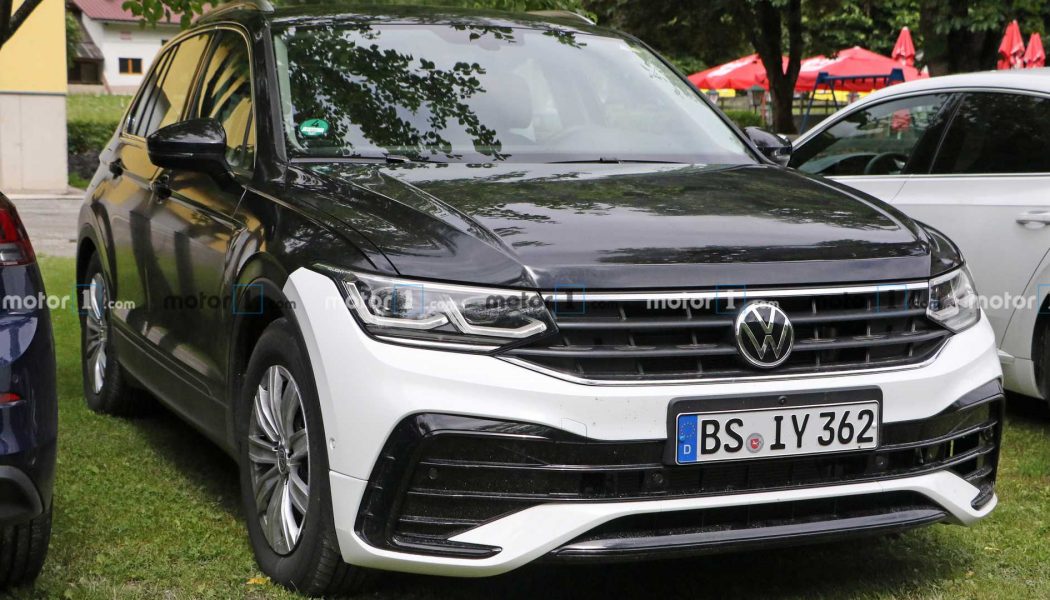Crossovers and SUVs are the bread and butter of Volkswagen’s product line. In fact, more than half of all VWs sold in the United States in 2019 were such models. Predictably, the German automaker wants more of this sales action, and it’s leaning into it by adding a new, smaller model to its lineup.
Earmarked for production at the company’s Puebla, Mexico plant, the latest Volkswagen crossover aims to take on the Jeep Compass, Kia Seltos, and Nissan Rogue Sport. As we previously reported, VW is not simply building a variant of its European-market T-Roc subcompact crossover for North American consumption. Instead, we expect the brand to build an iteration of the Tharu crossover it sells in China, albeit sold on our shores under a different name. Recent filings by Volkswagen with the United States Trademark and Patent Office suggest that the model will be named the Taos or Tarek.
2022 Volkswagen Taos/Tarek On-Sale Date and Pricing
Look for the latest addition to VW’s growing crossover and SUV model line to go on sale next summer, per a company spokesperson. Given the larger Tiguan starts at just under $26,000, the Taos/Tarek will likely start at less than $24,000. Still, stepping up the trim ladder ought to balloon the model’s price noticeably, with loaded versions of the crossover creeping close to—if not just breaking past—the $30,000 mark.
2022 Volkswagen Taos/Tarek Engine and Performance
We expect the Taos/Tarek to crib its powertrain from the Jetta sedan. As such, look for the new model to rely on a 147-hp turbocharged 1.4-liter four-cylinder engine for motivation. Unlike the Jetta, which offers an available six-speed manual transmission, the Taos/Tarek will likely come strictly with an eight-speed automatic gearbox, which will direct power to the crossover’s front wheels or all four wheels by way of an optional all-wheel-drive system.
2022 Volkswagen Taos/Tarek Interior, Technology, and Safety
Like its powertrain, the Taos/Tarek is sure to steal the Jetta’s most important convenience and safety technology. A 6.5-inch touchscreen infotainment system is expected to serve as the crossover’s standard setup, with higher-end models netting an 8.0-inch unit. A 10.3-inch digital gauge cluster will also be offered.
Look for a bevy of available high-tech safety and convenience options to make its way to the crossover’s standard and optional features lists, including automated emergency braking with pedestrian detection, a blind-spot monitoring system with rear cross-traffic alert, adaptive cruise control, lane-keeping assist, and automatic high-beam headlights.
At 175.3 inches long, the Chinese-market Tharu is nearly 10 inches shorter than the U.S.-market Tiguan. Predictably, the Tharu’s smaller size nets it less cargo space, with the Tharu packing approximately 16.1 cubic feet behind its rear bench seat. Fold the rear seatbacks down and that figure balloons to almost 54.5 cubes. By comparison, the Tiguan offers as much as 37.6 cubic feet of space behind its second-row and 73.5 cubes behind its two front seats.
We’ll wait to see if the Taos/Tarek maintains the Tharu’s somewhat small cargo dimensions (we have a feeling the Environmental Protection Agency’s interior measurement methods may result in a different recorded capacity relative to the Tharu). That said, it’s quite clear the Taos/Tarek will offer notably less space in its cargo hold relative to the bigger Tiguan.
Whatever Volkswagen ends up calling its new small crossover, the brand’s latest addition to its U.S. model line is sure to follow the same basic formula of its successful Jetta and Tiguan stablemates. That includes a nicely built cabin, a competitive starting price, and a relatively roomy cabin relative to its competition.










